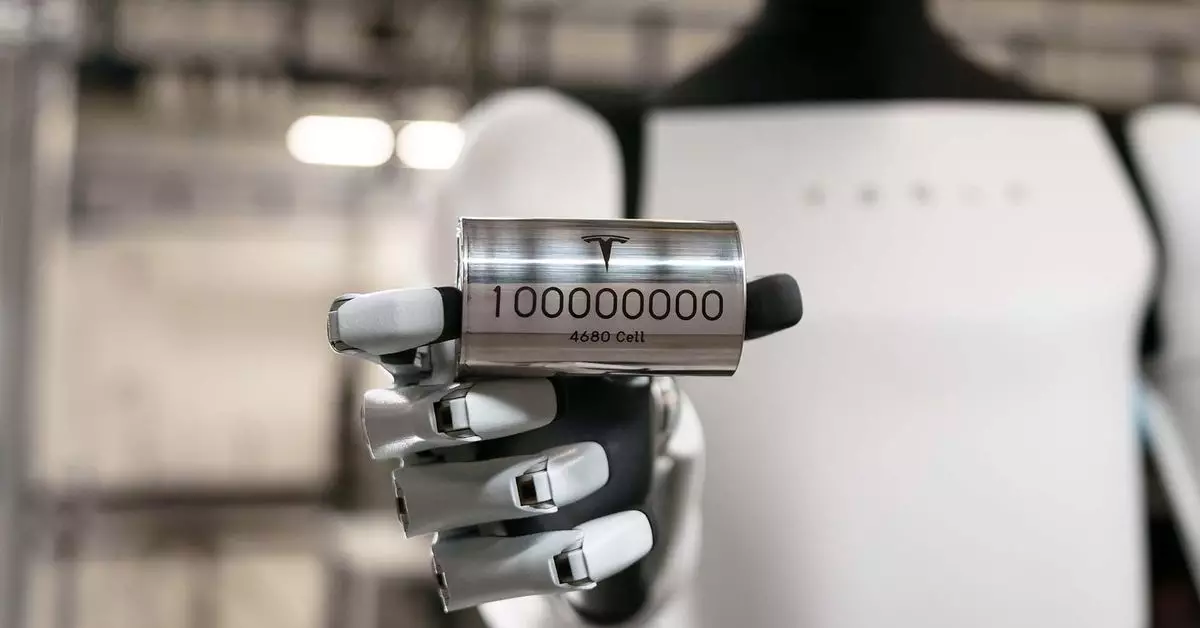As the world accelerates toward electrification, the battle for supremacy in electric vehicle (EV) battery technology intensifies. This conflict is encapsulated in a recent exchange between some of the industry’s most influential figures: Robin Zeng, the founder and chairman of Contemporary Amperex Technology Co., Ltd. (CATL), and Elon Musk, the CEO of Tesla. This rivalry dramatically illustrates the uncertain trajectory of EV battery innovation and poses questions about the future of energy storage.
Musk’s ambitious venture into producing 4680 cylindrical cells is currently facing scrutiny. Zeng has publicly challenged Musk’s conviction in this technology, stating that he believes Musk’s efforts will ultimately encounter significant obstacles that lead to failure. The 4680 cells, which Tesla claims offer five times the energy capacity of previous designs, are critical for the company’s strategy, particularly for vehicles like the Cybertruck. However, Zeng’s recent comments suggest that the hype around such technologies may be misleading, raising doubts regarding the feasibility of Musk’s timeline and claims.
The tension between optimism and realism is palpable within the battery sector, as evidenced by Musk’s ambitious production goals. A recent deadline set for Musk’s team to resolve technical issues surrounding the 4680 cells exemplifies the pressure to bring innovations to market swiftly. However, as Zeng implied, hastily set timelines could lead to overpromising without a solid foundation of technological backing, suggesting that Musk may be facing challenges in translating vision into reality.
While Tesla is heavily investing in its own cell technology, CATL continues to lead the global market with its lithium iron phosphate (LFP) batteries, which are known for their safety and longevity, albeit with somewhat lesser range compared to higher-energy density cells. CATL batteries are a preferred choice not only for Tesla vehicles manufactured in China but also for other major automotive players, such as Ford, exemplifying their widespread adoption. This raises the intriguing question: will Musk’s cylindrical cells gain traction over established LFP technology, or will they fall short in meeting consumer demands?
Zeng’s criticism does not focus solely on technology but also on Musk’s approach to setting timelines. The tech entrepreneur is known for his aggressive predictions, which often lead stakeholders to expect rapid advancements that do not materialize as envisioned. The propensity to overpromise could be a double-edged sword; while it galvanizes investment and excitement, it also sets the stage for disappointment if those promises are not fulfilled. This phenomenon could have ripple effects across the industry, influencing investor confidence and public perception.
As the electric vehicle market continues to evolve, the implications of this rivalry between Musk and Zeng go beyond personal vendettas; they reflect deeper issues concerning innovation, production, and market demands. The success of EV battery technologies will not only define the future of Tesla and CATL but could establish paradigms for the energy sector as a whole. It’s a race with high stakes, and only time will tell which approach—Musk’s ambitious tech or Zeng’s seasoned expertise—will ultimately dominate the landscape.

